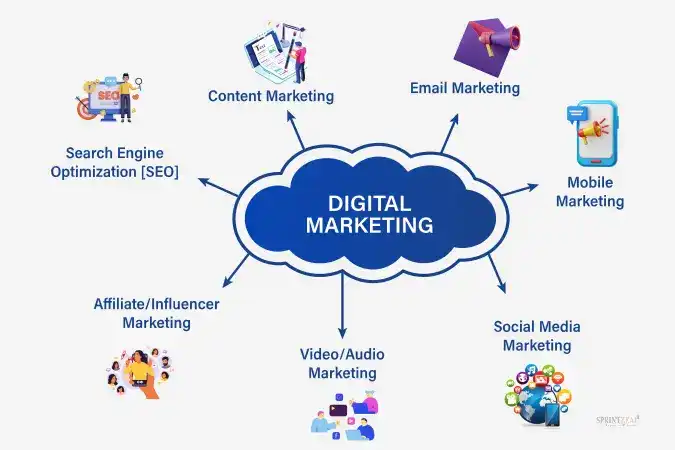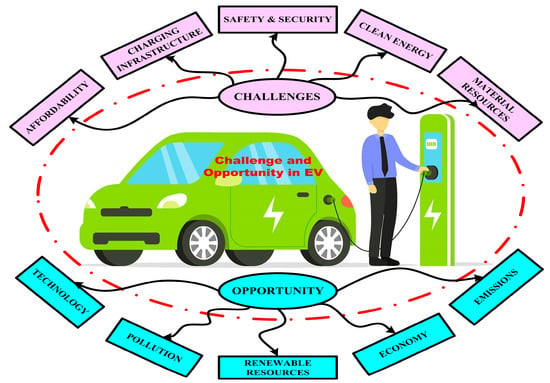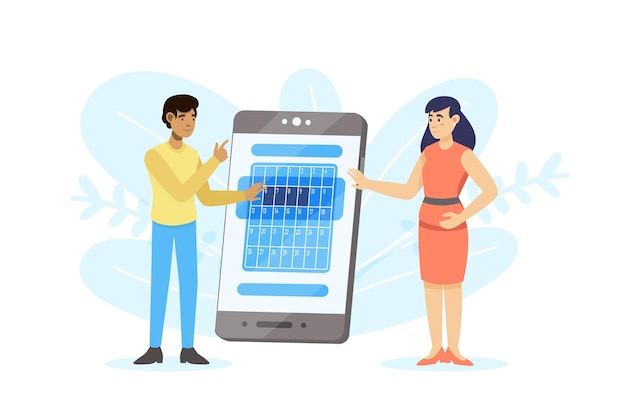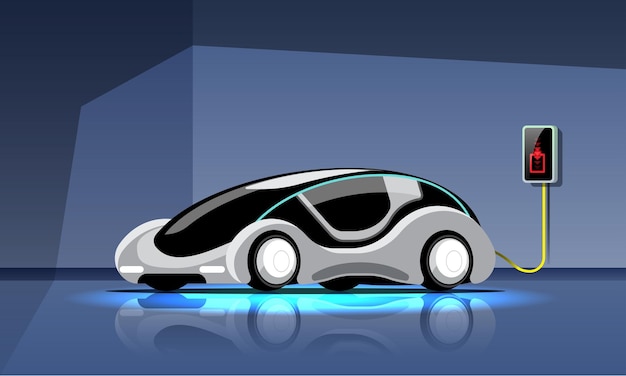The Evolution of Mobile Apps: A Revolutionary Journey
Mia Anderson

Photo: The Evolution of Mobile Apps: A Revolutionary Journey
The world of mobile applications, or apps as they are fondly known, has revolutionized the way we interact with our mobile devices and each other. With a simple tap or swipe, we can access a wealth of information, connect with friends across the globe, and even control our homes. But the journey to this app-centric world didn't happen overnight. It's a story of innovation, adaptation, and a fair bit of trial and error. So, let's delve into the history of mobile apps and explore the revolutionary journey that has shaped our digital lives.
The Early Days of Mobile Apps:
The concept of mobile applications can be traced back to the early days of personal digital assistants (PDAs) and the first smartphones. In the late 1990s and early 2000s, PDAs, such as the Palm Pilot, introduced the idea of portable, personalized computing. These devices allowed users to install basic applications, like calendars and address books, setting the stage for the app-driven ecosystem we know today.
However, the true game-changer came with the launch of the Apple App Store in 2008. With the release of the iPhone 3G, Apple introduced a centralized marketplace for mobile applications. This marked a significant shift, as it provided a platform for developers to reach a wide audience and offer users a diverse range of apps. The App Store model revolutionized the mobile industry, creating a vibrant ecosystem that encouraged innovation and creativity.
The Rise of the App Economy:
The App Store's success sparked a gold rush of sorts, with developers flocking to create the next big app. This period saw the emergence of the app economy, where developers could turn their ideas into profitable ventures. The app market grew exponentially, offering everything from games and social media platforms to productivity tools and entertainment apps.
The app economy empowered individuals and small teams to make a living from their creations. It also spurred competition, driving developers to create more engaging and innovative apps. This period witnessed the rise of iconic apps like Angry Birds, which showcased the potential for mobile gaming, and Instagram, which transformed how we share and consume visual content.
Google Joins the Fray:
While Apple paved the way for mobile apps, Google quickly recognized their potential and jumped on the bandwagon. In 2012, Google opened its Google Play Store, a direct competitor to the App Store. This move signaled the growing importance of mobile apps across different device ecosystems.
The Google Play Store brought apps to a wider Android audience, further accelerating the app revolution. It also introduced a more open ecosystem, allowing developers greater flexibility in distributing their apps. This competition between Apple and Google drove innovation, benefiting users with more choices and developers with expanded reach.
The Impact of Mobile Technology:
Mobile apps have had a profound impact on our daily lives and the way we interact with technology. Smartphones, now equipped with powerful processors and intuitive interfaces, became miniature computers capable of handling complex tasks.
Apps revolutionized how we communicate, with messaging and social media apps connecting us instantly with friends and family worldwide. They transformed how we consume media, offering on-demand access to music, movies, and news. Additionally, apps have enhanced our productivity, providing tools for task management, note-taking, and document creation on the go.
Beyond convenience, mobile apps have also played a crucial role in empowering individuals and communities. For example, during the COVID-19 pandemic, health and fitness apps saw a surge in popularity as people sought ways to stay active and healthy while confined to their homes. Similarly, educational apps have brought learning resources to students in remote areas, helping bridge the digital divide.
The Evolution of App Design and Functionality:
The design and functionality of mobile apps have undergone a remarkable transformation over the years. Early apps were often simple and utilitarian, focusing on a single task. However, as technology advanced, app design became more sophisticated, incorporating intuitive user interfaces and visually appealing graphics.
The introduction of touchscreens and gesture controls revolutionized app interaction, making apps more engaging and user-friendly. Developers also began to leverage device-specific features, such as GPS and accelerometers, to create unique and context-aware experiences. For example, ride-sharing apps like Uber used location data to connect passengers with nearby drivers, offering a level of convenience unimaginable just a few years prior.
In recent years, app development has embraced artificial intelligence (AI) and machine learning. These technologies have enabled personalized experiences, predictive recommendations, and intelligent automation within apps. Chatbots, powered by natural language processing, have enhanced customer support, while AI-driven image recognition has improved search and discovery within apps.
The Future of Mobile Apps:
The history of mobile apps is a dynamic and ongoing narrative. As we move forward, the app ecosystem continues to evolve, shaping the future of mobile technology. One key trend is the growing emphasis on user privacy and security. In the wake of data breaches and privacy concerns, users are increasingly conscious of their digital footprints, driving developers to adopt more secure practices and offer transparent data handling.
Another exciting development is the rise of cross-platform app development, where developers can create apps that work seamlessly across different operating systems. This approach streamlines the development process and expands the potential user base for apps. Additionally, the integration of augmented reality (AR) and virtual reality (VR) technologies is opening up new possibilities for immersive app experiences, blurring the lines between the digital and physical worlds.
Conclusion
The history of mobile apps is a captivating journey that has transformed the way we live, work, and play. From the early days of PDAs and the App Store's inception to the app economy and design innovations, mobile applications have revolutionized our digital landscape.
As we look to the future, mobile apps will continue to evolve, offering enhanced functionality, improved security, and immersive experiences. The possibilities are endless, and it's exciting to consider what innovative apps and technologies await us. The journey of mobile apps is a testament to human ingenuity and our relentless pursuit of progress, unlocking a world of endless possibilities, one tap at a time.
I hope this article provides a comprehensive and engaging insight into the history of mobile apps, offering value to readers interested in technology, app development, and the impact of digital innovations on our lives.
Marketing
View All
January 22, 2025
The Future of Digital Marketing RevealedExplore where digital marketing is headed in the next decade. From AI to VR, see what’s shaping the future of online marketing. Don’t get left behind!
Mia Anderson

January 23, 2025
10 Content Strategies for Digital SuccessCreate winning content with these 10 proven digital marketing strategies. Enhance engagement and conversions starting today!
Mia Anderson

January 19, 2025
How to Master Digital Marketing BasicsLearn the essentials of digital marketing in this beginner-friendly guide. Kickstart your journey with step-by-step strategies. Start mastering today!
Mia Anderson
Entertainment
View AllDiscover the top movies to watch in 2024. Explore our curated list of must-see films and stay updated on the year's hottest cinematic releases.
Mia Anderson
Discover how influencers' place in the media is changing. Discover how influencers are revolutionizing the marketing landscape and why it is impossible to ignore their impact on consumers. Find out the keys to their worth and success!
Mia Anderson
Discover the latest strategies for creating a successful podcast in 2024. Learn key tips and techniques to launch and grow your show effectively. Read now!
Mia Anderson
Discover the best premium TV shows streaming right now. Get exclusive recommendations and top picks to enhance your viewing experience. Click to explore!
Mia Anderson
Automotive
View AllExplore how the rise of electric vehicle (EV) infrastructure is driving changes in land use and urban planning worldwide.
Read MoreCompare the total cost of ownership (TCO) between EVs and internal combustion engine vehicles. Which is more affordable?
Read MoreDiscover how AI applications are transforming EV technology, from autonomous driving to predictive maintenance.
Read MorePolular🔥
View All
1
2
3
4
5
6
7
8
9
10
Technology
View All
November 3, 2024
10 Tech Gadgets You Didn't Know You Needed in 2024
Discover the top 10 tech gadgets that will change your life in 2024. Uncover hidden must-haves read now!

September 17, 2024
Top Software Development Life Cycle Trends to Watch in 2024
Explore the latest 2024 trends in the Software Development Life Cycle. Learn how AI, MLOps, and cloud innovations are shaping the future. Read now for insights!

August 12, 2024
Small Business, Big Leap: Call Center Software that Scales with You
Elevate your small business with call center software. Discover the top 5 platforms with advanced features like AI bots and omnichannel support to transform your customer experience.
Tips & Trick






















